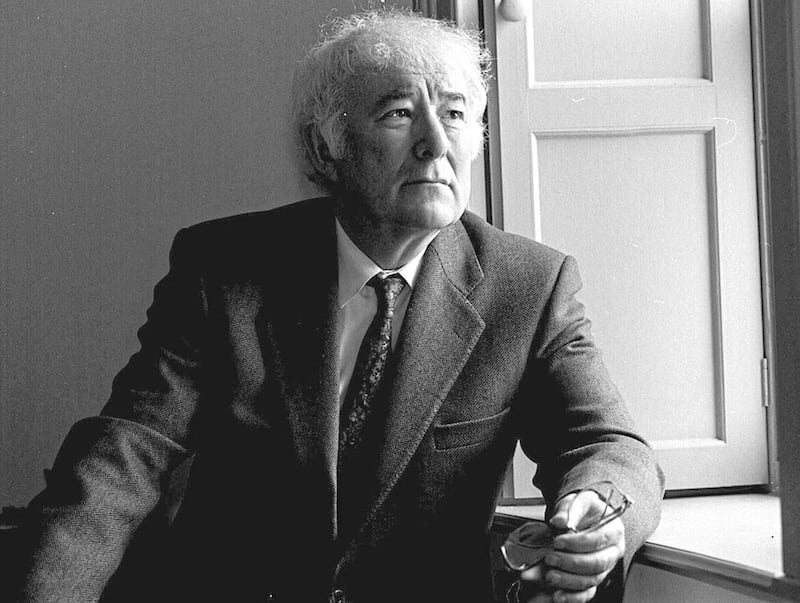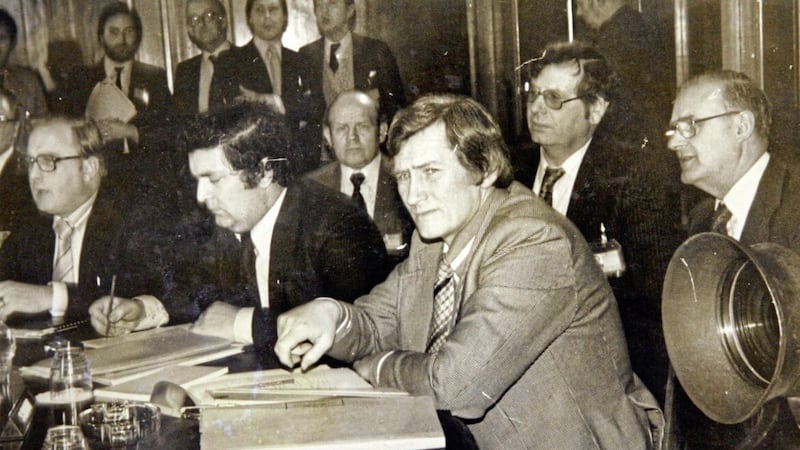December 18 1973
Government in Northern Ireland would be incomplete without the voice of working-class Protestantism, Mr Seamus Mallon, SDLP Assemblyman for Armagh, said at the International Youth Convention at Corrymeela.
Mr Mallon said he would welcome their future participation unhampered by the dictates of those visionless leaders whose political judgement had been proved to be totally limited.
It is the obituary notice for the self-deceiving, one-party rule under which this province was governed since its inception; equally, it spells the end of the introverted, sterile policy of non-involvement forced on the minority community during this time
— Seamus Mallon
Referring to the Loyalist Coalition opposition to power-sharing and a Council of Ireland, Mr Mallon said he considered it to be a tragic mistake that short-sighted, blinkered leadership within the Coalition had led this body of political opinion into a blind alley and isolated them from representation in future administration.
The settlement at Sunningdale, Mr Mallon said, was the beginning of a new outward looking era in the political life of Northern Ireland. And he went on: “It is the obituary notice for the self-deceiving, one-party rule under which this province was governed since its inception; equally, it spells the end of the introverted, sterile policy of non-involvement forced on the minority community during this time.”
Seamus Mallon, who famously referred to the Good Friday Agreement as “Sunningdale for slow learners”, condemns political unionism’s rejection of Sunningdale and urges working-class Protestants to participate in the new power-sharing institutions.

Child Poets see Death as Only Way to Peace
“Peace can only come to our province when everyone has been killed.” This is the message expressed by one of Northern Ireland’s children, Sarah Barbour, in a poem, “Ten Little Soldier Men”, that has won her first prize in the Peace Point Poetry Competition.
Yesterday at a reception in the Wellington Park Hotel, Belfast, Siobhan McKenna recited the winning poem and Frank Ormsby presented Sarah, from Ballymoney, and the 11 other winners with their prizes.
The children were given the general theme of peace to write about. The very sad fact was that they all appeared to accept bombs and death as a normal part of life but didn’t understand why it was happening
— John Seager
“The effect the Troubles have on our children is often forgotten, yet it is one of the saddest aspects. The sentiments expressed in the winning poem are typical of the themes expressed in all the entries,” said Mrs Atkinson, of the Belfast Peace Point.
The poetry competition was run as a result of a poem sent in to the Belfast Peace Point Office by a young Belfast schoolgirl. The Peace Point Committee on both sides of the border were so impressed by the depth of feeling expressed ithat they decided to find out if this was typical of the way the under-14s here felt.
“The children were given the general theme of peace to write about. The very sad fact was that they all appeared to accept bombs and death as a normal part of life but didn’t understand why it was happening…,” said Mr John Seager, of the Dublin Committee.
The competition was judged by Mr Seamus Heaney, the prominent Irish poet.
Reflecting the grimness that existed in the north at the time, the poems by children in Northern Ireland were dominated by expressions of bleakness and pessimism for peace to happen.


